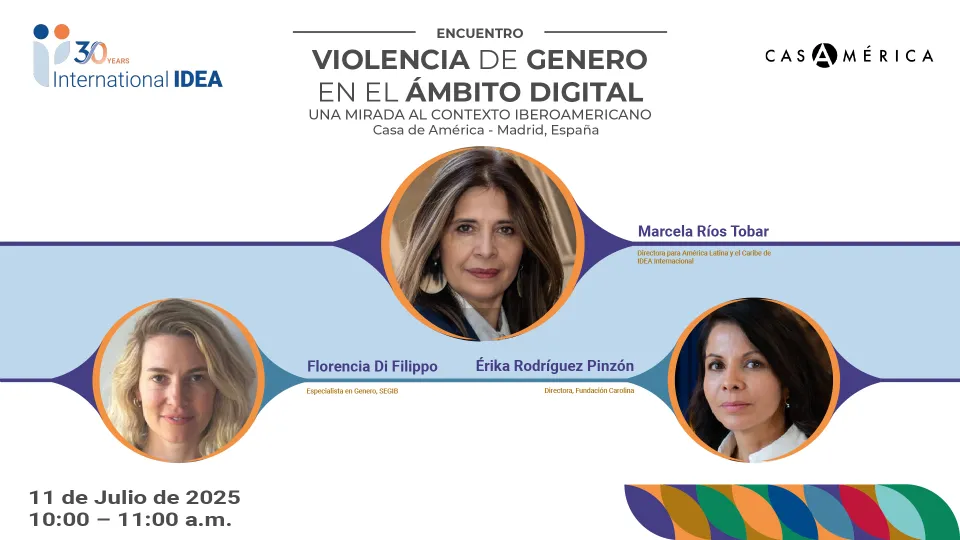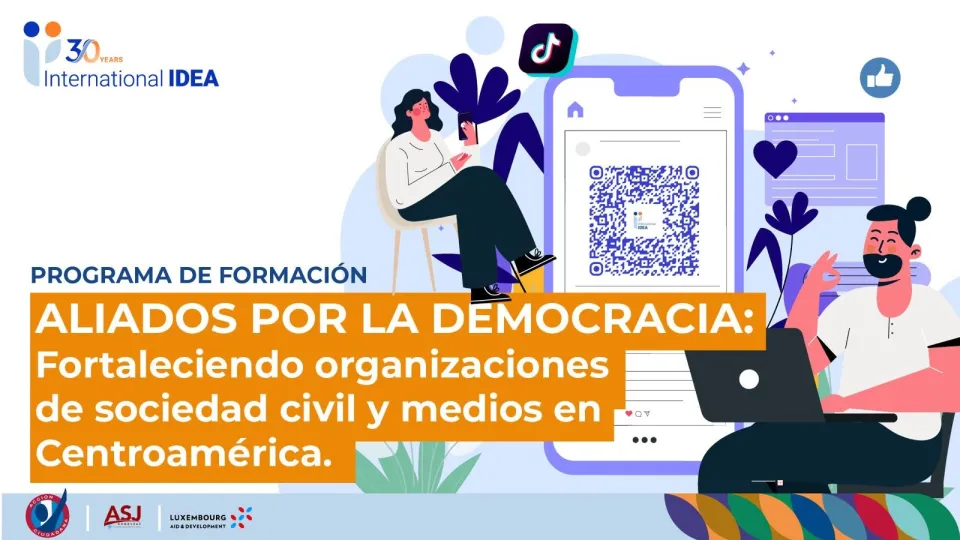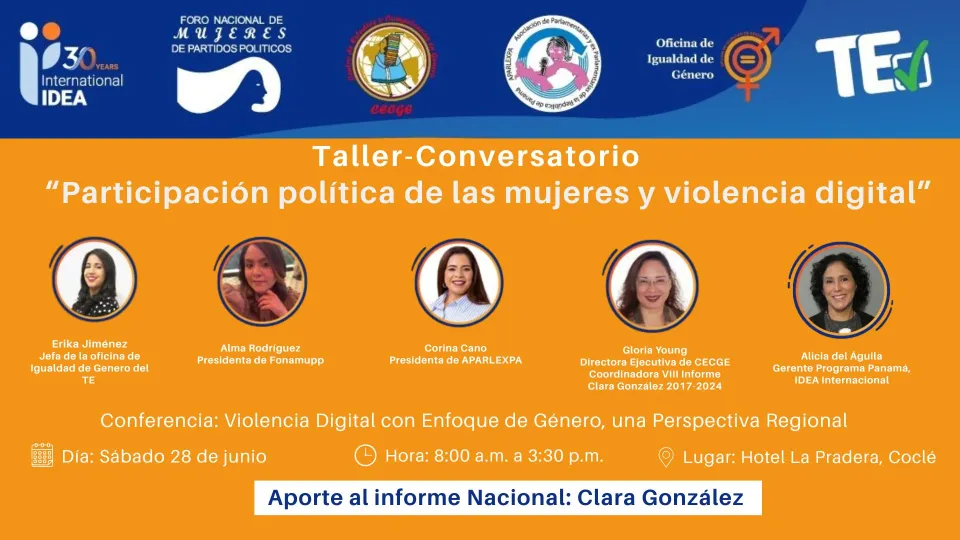International IDEA is organising and convening, a High-Level Dialogue on “Re-imagining Democracy in Africa: Comparative Experiences from the Global South," together with the African Union, Open Society Foundations, Switzerland’s Federal Department of Foreign Affairs, the European Union and the Department of International Cooperation and Relations (DIRCO) of the Government of South Africa, on 19–20 Jun
Búsqueda
Region
Country
Type
The International Institute for Democracy and Electoral Assistance (International IDEA) is organising a Regional Dialogue on Advancing Transformative Gender Social Norms to Enhance Women and Youth Participation and Representation in Leadership and Decision-Making and a National Intergenerational Dialogue on Advancing Youth Participation and Representation in Leadership and Decision-Making in cooperation with UN Women.
The WPP barometer is a resource that demonstrates the status of Women's Political Participation in Africa. It aims to provide evidence, especially to legislators and policy makers to advocate and strengthen women's political participation and leadership. The webinar will take place on 10 July 2024 from 9:00 am to 1:00 pm (CEST).
Keynote speaker
Tshireletso Mogogi Botlogile
Panel
Event will be broadcasted in English and French.
Under the theme "Transforming Political Campaigns: How AI and Big Data Amplify Voter Engagement and Shape Political Campaigns in Africa" International IDEA Political Participation and Representation Programme is sponsoring the International Political Campaigns Expo which will be held in Cape Town, South Africa from the 24 to the 26 January 2024.
Women’s presence in politics is vital for shaping policy outcomes in the economic, social and cultural spheres. Despite progress over the past two decades, women remain under-represented in political leadership in Africa.
Effective governance of mineral resources is vital to Africa’s sustainable development, with the potential to transform resource wealth into broad-based economic growth. With the right governance frameworks, the continent’s vast mineral endowments can benefit local communities, national economies and global markets. However, many African countries face ongoing challenges related to governance, transparency and the equitable distribution of resource revenues.
Legislatures are vital institutions at the heart of any democracy. They not only enact laws and approve budgets, but also act as representative and deliberative assemblies, and as bodies that scrutinize and oversee the actions of the executive. In order to perform these functions effectively, legislatures need to be organized, in terms of their internal leadership, their committee structures, and the rules by which they transact public business.
A resource tool that demonstrates the status of women's political participation in Africa.
Natural resources feature prominently in many political and economic settlement processes after conflict. When these processes include constitutional reform, it may be expected that mechanisms for natural resource governance would be included in the new constitutional framework, but often this is not the case.
Female politicians and young women aspiring to join politics from 47 counties have received a five-day training from the 5th Women in Political Participation (WPP) Academy on how to enhance their political leadership skills, promote inclusivity in political participation and inspire young women to join politics.
The International Institute for Democracy and Electoral Assistance (International IDEA), through the Sierra Leone Democracy Strengthening Programme, funded by the European Union (EU) has facilitated a 4-day (19th – 22nd February) peer learning visit for the PPRC aimed at fostering shared learning and exploring best practices in political and campaign financing for the PPRC of Sierra Leone.
This case study highlights how the Electoral Commission of South Africa (IEC) has developed strategies to identify and manage risks; adapt and respond to changing circumstances; and prepare for possible crises.
Through formal risk and crisis management processes, scenario-based planning and well-established governance structures, the IEC has managed to maintain the integrity of electoral processes in South Africa despite several challenges, such as the Covid-19 pandemic.
Africa has made significant progress in enhancing inclusive political participation and representation, mostly for women, youth and people living with disabilities. This report unpacks the trends and challenges of inclusive participation in Africa.
The increased prevalence of political transitions following internal conflict has seen heightened attention given to both transitional justice and constitution-building as fields of study and intervention.


